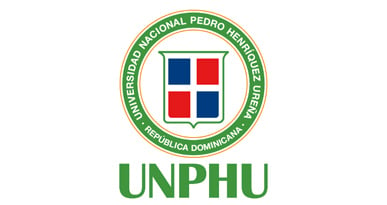Mostrar el registro sencillo del ítem
Steam Learning for the Development of Scientific Skills in Infants
| dc.contributor.author | Riega, Romie | |
| dc.contributor.author | Flores, Mayelin | |
| dc.contributor.author | Velarde, Norma | |
| dc.contributor.author | Acra-Despradel, Claudia | |
| dc.contributor.author | Rondon, David | |
| dc.contributor.author | Ortiz-Esparza, Miguel Angel | |
| dc.contributor.author | Villalba-Condori, Klinge | |
| dc.date.accessioned | 2024-06-22T23:55:27Z | |
| dc.date.available | 2024-06-22T23:55:27Z | |
| dc.date.issued | 2023 | |
| dc.identifier.citation | Riega, R., Flores, M., Velarde, N., Acra-Despradel, C., Rondon, D., Ortiz-Esparza, M. A., & Villalba-Condori, K. (2023). Steam Learning for the Development of Scientific Skills in Infants. CEUR Workshop Proceedings, 3691, 195-208. | en_US |
| dc.identifier.issn | 16130073 | |
| dc.identifier.uri | https://repositorio.unphu.edu.do/handle/123456789/5709 | |
| dc.description.abstract | In infants, teaching strategies focus on play and experiential activities; The development of scientific competencies based on STEAM involves a series of pedagogical approaches, so the purpose of this work was to implement a mini-ecosystem as a teaching strategy. 20 children between 4 and 5 years old from the educational institution “Dulces Brotecitos” participated. The study is developed within the qualitative paradigm, as a case study over a period of 2 months for the operation of the mini-ecosystem and 3 months for its implementation. Non-participant observation, recording of photos and videos were used; and field notebook to analyze the results. In the findings, 4 and 5 year old children spontaneously and flexibly use their senses to observe different phenomena and objects of everyday life, they also raise hypotheses and make inferences to solve problems. The various experiences presented to infants activate their interest in science, such as robotics. The STEAM approach, acronym for Science, Technology, Engineering, Art and Mathematics, aims to integrate these disciplines into the educational process and encourage the development of each of them (Pahnke, Janna; O'donnell, Carol; Bascopé). The approach of STEAM learning sessions at an early age favors the development of skills in these subjects, which will then facilitate subsequent learning (Zollman, 2012). The objective of this project was to analyze the development of scientific thinking skills in children aged 4 and 5 at the Initial level, under the STEAM approach, working in a Mini Ecosystem, in which the sectors are implemented: the pedagogical garbage dump, games to build and sensory tables. The work with parents, community entities and private companies contributed to the implementation of a mini-laboratory, as part of the mini-ecosystem. | en_US |
| dc.language.iso | en | en_US |
| dc.publisher | CEUR Workshop Proceedings | en_US |
| dc.rights | Attribution-NonCommercial-NoDerivatives 4.0 Internacional | * |
| dc.rights.uri | http://creativecommons.org/licenses/by-nc-nd/4.0/ | * |
| dc.subject | Estrategias educativas | en_US |
| dc.subject | Competencia profesional | en_US |
| dc.subject | Aprendizaje | en_US |
| dc.subject | Estrategias de aprendizaje | en_US |
| dc.title | Steam Learning for the Development of Scientific Skills in Infants | en_US |
| dc.type | Article | en_US |
Ficheros en el ítem
| Ficheros | Tamaño | Formato | Ver |
|---|---|---|---|
|
No hay ficheros asociados a este ítem. |
|||


